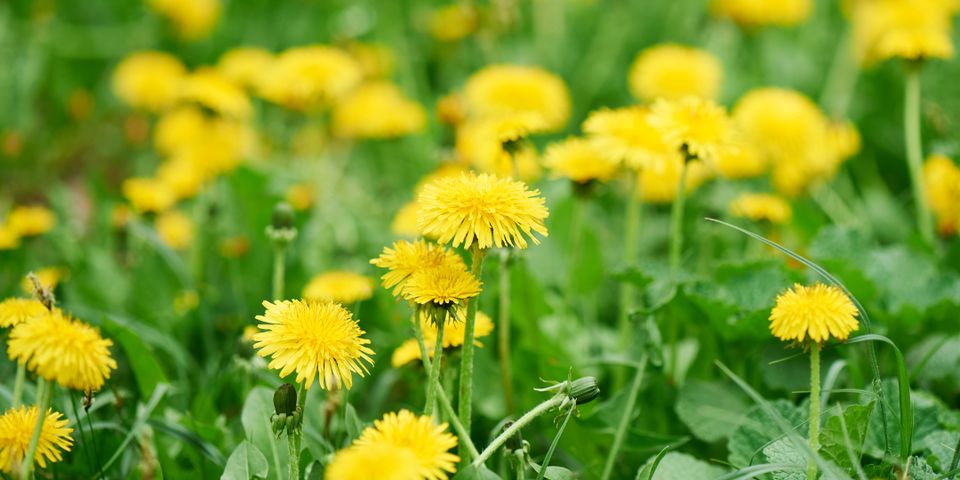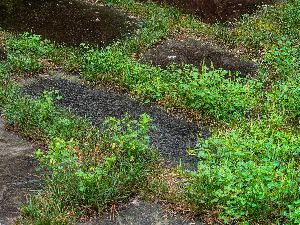Differences Between Annual and Perennial Weeds

Like many types of vegetation, weeds can be separated into two distinct categories: annuals and perennials. Annuals last one growing season, while perennials survive the winter and return each spring. There are additional differences between them, and the first step to effective weed control is understanding the distinctions.
Annuals
All annual weeds go through a complete life cycle in a single year. They germinate, flower, produce seeds, and die within a 12-month period. But just because they die at the end of the year doesn't mean they won't return. This is because they always grow from the seeds produced during the prior growing season.

There are two primary subtypes of annual weeds. Summer annuals sprout as soon as the earth starts warming up in the spring and die with the first frosts of fall. Crabgrass and knotweed are two common examples.
Winter annuals germinate in the late summer or fall. They survive the winter and flower, seed, and die by early the next summer. Common chickweed and annual bluegrass are two examples. Annuals are generally easier to get rid of with weed control products than perennials are. They are less hearty and less able to withstand herbicides.
Perennials
Perennial weeds stay alive from one year to the next because they store carbohydrates in their roots, tubers, and other underground components. If you dig up a weed and it has an intricate collection of subterranean parts, it is likely a perennial.
Like annuals, there are two main subtypes of perennial weeds. Simple, or solitary, perennials grow separately from one another, and each has its own root system. Dandelions are simple perennials. Spreading perennials start as seeds but produce runners that grow either above or under the ground, causing the growth to spread over large areas. Two common examples are white clover and ground ivy.
Weed control is often tricker with perennials. Hand control is difficult because you have to remove the entire root system of every individual weed. For this reason, both preemergent and post-emergent herbicides are most effective.
When you need weed control products for industrial or commercial applications, trust Pro-Serve Inc. Based in Memphis, TN, their BareSpot and BareGound products have been an important part of successful vegetation management plans for more than 30 years. Their pelleted, non-selective herbicides deliver dependable performance and season-long control. Visit them online for more information about their products, and call (877) 776-7375 with questions.
About the Business
Have a question? Ask the experts!
Send your question

